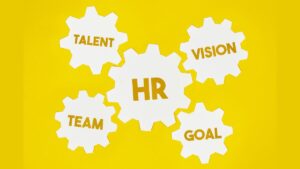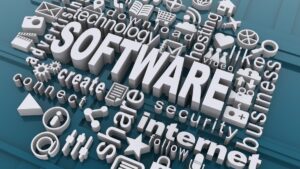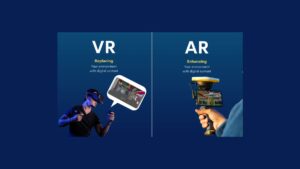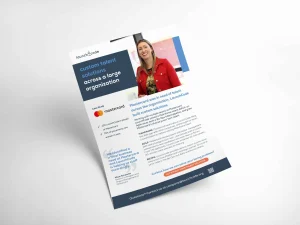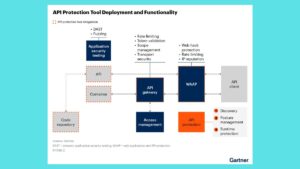From Data to Decisions: How AI is Revolutionizing HR Strategy

In the digital age, data has become the lifeblood of organizations, driving decisions that shape the future of business. Nowhere is this transformation more evident than in Human Resources (HR), where Artificial Intelligence (AI) is fundamentally changing how HR leaders approach strategy. From talent acquisition to employee engagement, AI is enabling HR teams to make smarter, faster, and more informed decisions, paving the way for a more agile and responsive workforce.
1. The Evolution of HR Strategy
Traditionally, HR strategies were driven by intuition, experience, and manual data analysis. While these methods served their purpose, they often lacked the precision and agility required in today’s fast-paced business environment. AI, with its ability to process vast amounts of data and generate actionable insights, is enabling HR leaders to move from reactive to proactive strategies.
2. AI-Powered Talent Acquisition
One of the most significant areas where AI is making an impact is in talent acquisition. Finding the right talent is a critical challenge for HR, and AI is transforming this process in several ways:
- Automated Resume Screening: AI-powered tools can scan thousands of resumes in seconds, identifying the best candidates based on specific criteria. This not only speeds up the hiring process but also reduces human bias, leading to more diverse and inclusive hiring practices.
- Predictive Analytics for Hiring Success: AI algorithms can analyze historical hiring data to predict which candidates are likely to succeed in a particular role. By considering factors such as cultural fit, skill sets, and past performance, AI helps HR teams make more informed hiring decisions.
- Enhanced Candidate Experience: AI-driven chatbots can engage with candidates 24/7, answering questions, providing updates, and guiding them through the application process. This creates a more personalized and efficient experience for candidates, improving the employer brand.
3. Personalized Employee Development
Employee development is another critical aspect of HR strategy where AI is making a difference. With AI, HR teams can create personalized development plans that cater to the unique needs and goals of each employee:
- Learning and Development Platforms: AI-driven learning platforms can recommend training programs, courses, and resources based on an employee’s role, skills, and career aspirations. This ensures that employees receive relevant training that enhances their capabilities and prepares them for future roles.
- Performance Management: AI can analyze performance data to identify patterns and trends, providing managers with insights into employee strengths and areas for improvement. This enables more targeted coaching and feedback, leading to better performance outcomes.
- Career Pathing: AI can help employees visualize their career paths within the organization by mapping out potential roles and the skills required for each. This empowers employees to take control of their career development, leading to higher engagement and retention.
4. Data-Driven Employee Engagement
Employee engagement is crucial for organizational success, and AI is helping HR teams take a more data-driven approach to this area:
- Sentiment Analysis: AI can analyze employee feedback, surveys, and even social media activity to gauge employee sentiment in real time. This allows HR teams to identify potential issues before they escalate, ensuring a more positive work environment.
- Personalized Engagement Initiatives: By analyzing employee data, AI can help HR teams design engagement initiatives tailored to the needs and preferences of different employee groups. This could include personalized recognition programs, wellness initiatives, or team-building activities that resonate with employees.
- Predictive Retention Models: AI can analyze factors such as job satisfaction, performance, and external market trends to predict which employees are at risk of leaving. HR teams can then take proactive steps to address these concerns, reducing turnover and retaining top talent.
5. Enhancing Diversity and Inclusion
Diversity and inclusion (D&I) are top priorities for modern organizations, and AI is playing a pivotal role in advancing these initiatives:
- Bias Reduction in Hiring: AI algorithms can be designed to minimize bias in the hiring process by focusing on objective criteria rather than subjective judgments. This leads to more diverse candidate pools and fairer hiring decisions.
- Inclusive Language in Job Descriptions: AI tools can analyze job descriptions to identify and remove biased or exclusionary language, ensuring that job postings appeal to a broader range of candidates.
- Data-Driven D&I Strategies: AI can help HR teams analyze diversity metrics and identify areas where improvements are needed. This data-driven approach enables organizations to set measurable D&I goals and track progress over time.
6. The Future of AI in HR
As AI continues to evolve, its impact on HR strategy will only grow. Future developments may include more advanced predictive analytics, AI-driven workforce planning, and even AI-powered leadership development programs. However, with these advancements come challenges, including the need to address ethical considerations, data privacy concerns, and the potential for AI-driven decisions to inadvertently perpetuate bias.
Conclusion
AI is revolutionizing HR strategy by transforming data into actionable insights that drive better decision-making. From talent acquisition to employee engagement, AI empowers HR teams to create more effective, personalized, and inclusive strategies. As organizations continue to embrace AI, HR leaders must stay ahead of the curve by leveraging AI to enhance their strategic impact and ensure their workforce is ready for the future.

